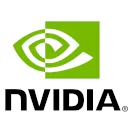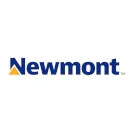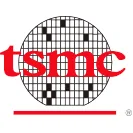What are the best US blue chip stocks of 2020?
Looking to buy blue chips? These are the best performing so far this year.
Blue chips are often hailed as the cream of the crop when it comes to investing in the stock market and the best bet for your money.
In reality, the term "blue chip" is pretty vague. The name is usually given to older companies that have a long and reliable track record of making profits. The idea is that while they're slower growing, they're less prone to major corrections.
For this reason, blue chips typically pay dividends and are considered less risky than other smaller stocks. Historically, they've been traditional financial institutions, such as banking and insurance firms.
However, the rule book is changing. With Internet and technology companies fast becoming the largest and most powerful companies in the world, newer and, therefore, more volatile companies are joining the ranks.
In Australia, the closest we have to an official list of blue chips is the S&P/ASX50 list, which is the 50 biggest companies on the ASX. Today, this is still dominated by banks and mining companies. However, technology-driven newcomers such as Afterpay are getting closer to the top.
In the US, the biggest listed companies are much more tech-heavy, with just 2 of the top 10 sitting outside of the technology and IT sectors. While blue chips tend to be slower moving, 2020 has seen some of the most well-established companies rally above and beyond the broader index. At the same time, the best performers aren't necessarily the most mainstream.
Below is a selection of the best-performing blue chip stocks listed in the US so far this year in order of stock performance. To be included, companies must be older than 10 years, have a market cap higher than $US50 billion and must pay a dividend.
Best performing US blue chips of 2020



3. NetEase (NASDAQ: NTES)
NetEase isn't actually a US company; however, it is dual-listed on the NASDAQ and it meets the criteria for a blue chip stock. NetEase is a Chinese Internet company that operates and develops desktop and mobile gaming, email, e-commerce and advertising services.
- YTD performance (to 22 September): 56.50%
- Market cap: US$66.323B
- Founded: 1997


5. Apple (NASDAQ: AAPL)
No explanation needed here. Apple is a multinational technology conglomerate headquartered in California. As of July 2020, it became the world's biggest publicly listed company with a market cap upwards of $US2 trillion.
- YTD performance (to 22 September): 49.95%
- Market cap: US$1.9T
- Founded: 1976


7. Taiwan Semiconductor Manufacturing Company (NYSE: TSM)
TSMC is a Taiwanese company that has been dual-listed on the NYSE. It is a semiconductor manufacturing and design company with clients that include Apple, NVIDIA and Advanced Micro Devices.
- YTD performance (to 22 September): 38.71%
- Market cap: US$417.946B
- Founded: 1987


9. Activision Blizzard (NASDAQ: ATVI)
Activision Blizzard is on the young side for a blue chip stock; however, its launch was thanks to the merging of two well-established gaming companies in 2008: Activision and Vivendi Games. Today, it has grown to be one of the most successful video game companies in the world.
- YTD performance (to 22 September): 37.01
- Market cap: US$63.795B
- Founded: 2008

How to invest in US blue chip stocks
To buy US blue chip stocks you'll need to open a brokerage account that offers access to the US market.
Since many blue chip stocks offer dividends, you'll want to check how your broker of choice handles these payments. Can you automatically reinvest dividends if you choose to? Will your broker immediately transfer all payments into your account?
Your other option is to trade US stocks through CFDs. These are derivative investment products that allow you to trade using leverage. When you trade stock CFDs, you don't ever own the underlying shares, instead you're betting on a stock's price movements (either up or down) by the way of a contract.
Because CFDs are leveraged, you can make and lose money much more quickly than you normally would trading shares directly, however this also makes them a lot riskier.
Trade with IC Markets
Compare other CFD trading platforms here

More headlines
-
All the big savings account interest rate rises: ING, AMP, Westpac + more
6 Feb 2026 |
-
Australian credit card debt soars 10% in a year: How can you escape the trap?
6 Feb 2026 |
-
4 cashback home loan offers to ease the pain of RBA rate hike
4 Feb 2026 |
-
Finder’s RBA Survey: Easing cycle ends as RBA delivers first rate hike since 2023
4 Feb 2026 |
-
Ubank Save is increasing its bonus rate up to 5.35% p.a.
3 Feb 2026 |
Ask a question




